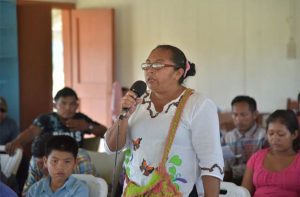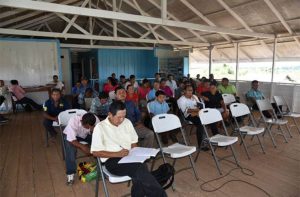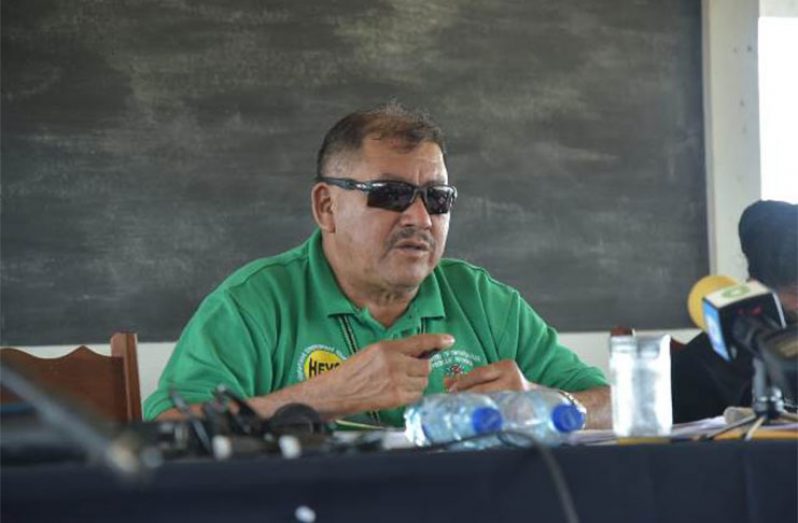—$165M earmarked for remaining identified areas for titling
THE life of the Amerindian Land Titling (ALT) project has been extended to 2021.
This was announced by Minister of Indigenous Peoples’ Affairs, Hon. Sydney Allicock, during his presentation at the North Rupununi District Development Board (NRDDB) meeting at Bina Hill, Annai, Region Nine.

Minister Allicock said Yupukari (Central Rupununi) is among two villages that are currently engaging the Cabinet and the other villages will be targeted soon. The ALT project began in 2013 when the then government signed a $2.2Billion (US$11M) document for the implementation of the Amerindian Land Titling and Demarcation project, which concluded in 2016. At the end of this process, many of the communities selected were not yet titled.
According to the minister, the project was a very ‘ambitious’ one, where it was expected that within three years, over 60 villages would have been titled and demarcated. He added that the process of land titling is “tedious”, and it was impossible to finish the process in such a short period.
Minister Allicock explained that in 2017, the government sought to extend the project and a further $165Million was earmarked for the advancing of the remaining identified areas for land titling.
Speaking on the challenges incurred during that process, the minister explained, “…for example in Region Seven, there are seven villages who refused being demarcated because of a court case. That was 2016; we are in the year 2019 and they are still not done. So, we have asked those seven villages to give up their space to seven other communities.
However, to date, nothing has been done. So, these are some of the challenges we face.”
He reminded that the process of Free Prior and Informed Consent (FPIC) must be followed when embarking on the demarcation of lands. This allows the community to be fully involved in the process.
“You live here, you know your area and if this was properly followed, we would have gone a far way with this project. However, we intend to go through the process to ensure it is done properly to ensure you, the residents, are satisfied.”

Minister Allicock further emphasised the need for residents to craft their Village Improvement Plan (VIP) which must include land use management – areas for farming, water catchment, public service, commercial and residential area and, more importantly, the protection of the natural environment.
The ALT project seeks to achieve three primary goals: completion of land title issues and demarcation process for all Indigenous villages that submitted requests; increased use of existing and alternative mechanisms to resolve land titling disputes and thirdly, a communication strategy including a handbook describing the process of titling, demarcation and socio-economic impact of secured land tenure.(DPI)




.jpg)









